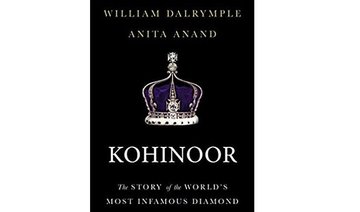“The Open Door” by Latifa Al-Zayyat is an incredible novel that follows the lives of the Sulayman family during the 1940s and 1950s in Egypt. At a time of Egypt’s political emergence as a completely sovereign nation, Al-Zayyat’s book follows the lives of ordinary Egyptian citizens who navigate through political and social changes as the Suez Crisis looms, their lives intertwined with the politics that will change their futures and shape their fates.
Al-Zayyat died in 1996, but is known as a transformative writer and a revolutionary for social and political change. “The Open Door,” which was originally published in 1960 in Arabic, is considered her magnum opus and was awarded the Naguib Mahfouz Medal for Literature in 1996. The book was later translated into English by Marilyn Booth in 2000 and a new edition was printed this year by Hoopoe Press.
The reader is first introduced to the scene of an unusual morning in Cairo in 1946. A demonstration of 40,000 has just taken place in Ismailiya Square and the streets are buzzing. Egyptians want the English gone and they are not afraid to show it. As one passerby on the street says to another, “this is a new stage of national consciousness.”
But in the home of Mohammed Effendi Sulayman, they are not talking about the demonstration. He sits in his chair reading the Qur’an and waiting for his son, Mahmoud, to return. Layla is 11-years-old at the time and is also waiting for her brother, who joined the demonstration despite his father’s disapproval, to return.
Once Mahmoud returns, wounded and bleeding, Layla runs to school to tell her friends. “The English got him. They hit him because he is a nationalist. Because he is a hero,” she tells them.
She is the envy of every girl that morning, but that soon fades, as does everything with time.
The reader follows Layla as her growth and transformation takes place alongside Egypt’s. Both are struggling for sovereignty. Despite her dreams of ridding the country of the English herself, of carrying a gun and going out to fight with the boys, her mother and father have other ideas, as does Egyptian society.
Once Layla hits puberty, her life changes. While once she was allowed to do and say anything, she is not anymore. She is told how to sit, how to speak, how to act and how to compose herself. While her brother grows into a man and is allowed his own freedom and space to make decisions, Layla loses her ability to do so completely. “She grew to the realization that to reach womanhood was to enter a prison where the confines of one’s life were clearly and decisively fixed.” Yet, despite her confines, she feels stronger than ever, her mind and body growing to embolden herself.
As Layla’s life moves forward, she dabbles in emotions such as love and encounters her first relationship. The reader follows her life at university and the way she is molded by her friends, the university’s climate, political change and her brother’s life. Through all of this, her demeanor changes. Her outlook on life teeters between optimism and misery and settles there. She resides herself to a life of unhappiness when she realizes that her life will always be controlled by someone or something other than herself. She finds out that real life “was so empty of poetry.”
Al-Zayyat’s book feels timeless, yet it is specific about the political timeframe. The way she writes about society and women is relevant today as women continue to struggle in the world.
The momentum of the book builds steadily as Egypt and Layla come to a moment in time that is theirs to grasp or give away. Soon the reader discovers that the winds of change are not fanned by nature but by the mouths of Egyptian citizens who know the control of their country is in their hands.
Al-Zayyat’s book is profound. It consistently brings into question the idea that women are taught to submit to society and then challenged to be their own person within their confines. It shows how repression can ruin lives and steal away courage and strength. It reveals that Egypt and Layla are one and the same, that abuse and influence treat any and everything the same.
Al-Zayyat dissects what it is to be a woman in the world. Her main character is every girl, across countries and cultures. She has finally exposed society’s experiment on women. However, it is not just an experiment on women, it is an experiment on imperialism and the results of resistance. Like Layla, Egypt is growing into its own, constantly changing and evolving with the people who involve themselves with it. It is influenced, strengthened and sometimes left helpless by the people who abuse it.
Immediately, there are visible parallels with the Arab Spring and with stories of its impact on Egyptians, such as in Basma Abdel Aziz’s “The Queue” and Bassem Youssef’s “Revolution for Dummies.” The scenes of political oppression and the pushback of the people are one and the same.
With the publication of “The Open Door,” Al-Zayyat was recognized as a revolutionary for social change and for women’s liberation. At the time her book was published, there were a host of women from whom she could draw inspiration, but to write about societal freedoms for women in a controlled patriarchal society and to write of female characters coming into their own by fighting social and political repression by finding their voices and joining conversations about the future of their country had not been done before.
Al-Zayyat herself lived through the crisis and, therefore, it is speculated that the book is the result of what she observed with her very own eyes. She was an activist for human rights and freedom of expression and lived during a time of great change in Egypt. She dug her feet into the sand to document the change and managed to stay standing until the end, as an Egyptian and as a woman with a voice equal to any other citizen.
Book Review: Fanning the winds of change in Egypt
Book Review: Fanning the winds of change in Egypt

What We Are Reading Today: Little Bosses Everywhere by Bridget Read

In “Little Bosses Everywhere,” journalist Bridget Read tells the gripping story of multilevel marketing in full for the first time.
“Little Bosses Everywhere” exposes the deceptions of direct-selling companies that make their profit not off customers but off their own sales force.
The book lays out an almost prosecutorial case against many multilevel marketing schemes, explaining why regulators need to take the industry seriously, and the larger story it tells about whom the economy has set up to fail.
The book “reads like a thriller as it investigates the birth and growth of this shadowy and sprawling industry that polished up door-to-door sales with a new veneer of all-American entrepreneurialism,” said a review in The New York Times.
The book primarily focuses on a broader analysis of pyramid schemes and their history.
What We Are Reading Today: ‘King Leopold’s Ghostwriter’

Author: Andrew Fitzmaurice
Eminent jurist, Oxford professor, advocate to the Archbishop of Canterbury, Travers Twiss (1809–1897) was a model establishment figure in Victorian Britain, and a close collaborator of Prince Metternich, the architect of the Concert of Europe.
Yet Twiss’s life was defined by two events that threatened to undermine the order that he had so stoutly defended: a notorious social scandal and the creation of the Congo Free State.
In “King Leopold’s Ghostwriter,” Andrew Fitzmaurice tells the incredible story of a man who, driven by personal events that transformed him from a reactionary to a reformer, rewrote and liberalized international law—yet did so in service of the most brutal regime of the colonial era.
In an elaborate deception, Twiss and Pharaïlde van Lynseele, a Belgian prostitute, sought to reinvent her as a woman of suitably noble birth to be his wife. Their subterfuge collapsed when another former client publicly denounced van Lynseele.
Book Review: ‘Oil Leaders’ by Dr. Ibrahim Al-Muhanna

Dr. Ibrahim Al-Muhanna’s book, “Oil Leaders: An Insider’s Account of Four Decades of Saudi Arabia and OPEC’s Global Energy Policy,” offers a detailed narrative of the oil industry’s evolution from a Saudi perspective, drawing on the author’s four decades of experience.
Published in 2022, the book coincides with global energy crises triggered by the COVID-19 pandemic and the Russian invasion of Ukraine.
Al-Muhanna relies on data from OPEC, the International Energy Agency and interviews to provide an anecdotal biography of key figures who shaped oil politics, targeting a broad audience including policymakers, researchers and industry professionals.
The book is divided into 11 chapters, beginning with the influential role of Saudi Oil Minister Ahmed Zaki Yamani, whose overconfidence and perceived indispensability are critically examined.
Subsequent chapters highlight other pivotal figures, such as Hisham Nazer, Yamani’s successor, and delve into events such as the 1991 Gulf War.
The narrative also covers Luis Giusti, of Venezuela’s PDVSA, whose disregard for OPEC quotas sparked tensions, and discusses OPEC’s struggles with production cuts and falling oil prices in the late 1990s, which led to economic crises in oil-exporting nations such as Saudi Arabia and Venezuela.
Al-Muhanna explores the political ramifications of oil price fluctuations, noting how high prices influenced US presidential elections and shaped diplomatic interactions, such as George W. Bush’s visit to Riyadh.
The book also examines the rise of Russia under Vladimir Putin, the privatization of Saudi Aramco as part of Vision 2030, and the roles of contemporary leaders such as Saudi crown prince Mohammed bin Salman and former US President Joe Biden in shaping global energy policy.
What We Are Reading Today: ‘Africa’s Buildings’ by Itohan I. Osayimwse

Between the 19th century and today, colonial officials, collectors, and anthropologists dismembered African buildings and dispersed their parts to museums in Europe and the United States.
Most of these artifacts were cataloged as ornamental art objects, which erased their intended functions, and the removal of these objects often had catastrophic consequences for the original structures.
“Africa’s Buildings” traces the history of the collection and distribution of African architectural fragments, documenting the brutality of the colonial regimes that looted Africa’s buildings.
What We Are Reading Today: ‘Birds at Rest’ by Roger Pasquier

“Birds at Rest” is the first book to give a full picture of how birds rest, roost, and sleep, a vital part of their lives.
It features new science that can measure what is happening in a bird’s brain over the course of a night or when it has flown to another hemisphere, as well as still-valuable observations by legendary naturalists such as John James Audubon, Alfred Russel Wallace, and Theodore Roosevelt. Much of what they saw and what ornithologists are studying today can be observed and enjoyed by any birder.



















